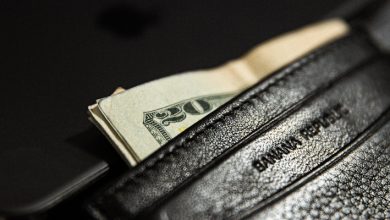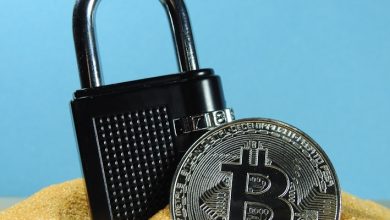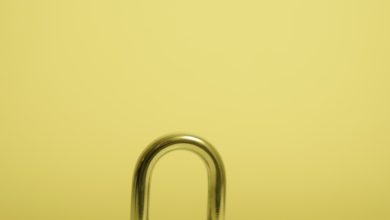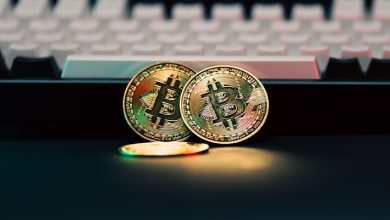Best Practices for Securing Your Cryptocurrency Assets

- Understanding the Risks of Holding Cryptocurrency
- Choosing the Right Wallet for Your Digital Assets
- Implementing Two-Factor Authentication for Added Security
- Backing Up Your Private Keys and Seed Phrases
- Avoiding Phishing Scams and Social Engineering Attacks
- Regularly Updating Your Security Measures and Software
Understanding the Risks of Holding Cryptocurrency
It is essential to understand the risks associated with holding cryptocurrency to ensure the security of your assets. One of the main risks is the volatility of the market, which can result in significant fluctuations in the value of your holdings. Additionally, the decentralized and unregulated nature of cryptocurrencies makes them vulnerable to hacking and fraud.
Another risk to consider is the potential for regulatory changes that could impact the legality or use of cryptocurrencies in certain jurisdictions. It is also important to be aware of the risks associated with storing your cryptocurrency in online wallets or exchanges, as these platforms are often targeted by hackers.
To mitigate these risks, it is recommended to store the majority of your cryptocurrency holdings in offline wallets or hardware wallets. These physical devices provide an extra layer of security by keeping your private keys offline and out of reach of hackers. Additionally, it is important to use strong passwords and enable two-factor authentication on all of your cryptocurrency accounts.
Choosing the Right Wallet for Your Digital Assets
When it comes to securing your cryptocurrency assets, choosing the right wallet is crucial. There are various types of wallets available, each with its own set of features and security measures. It’s important to understand the different options before deciding which one is best for you.
One option is a hardware wallet, which is a physical device that stores your private keys offline. This provides an extra layer of security since it is not connected to the internet, making it less vulnerable to cyber attacks. Hardware wallets are considered one of the safest ways to store cryptocurrency assets.
Another option is a software wallet, which is a digital wallet that can be accessed through a computer or mobile device. While software wallets are convenient and easy to use, they are more susceptible to hacking and malware attacks. It’s important to choose a reputable software wallet with strong security features.
You can also consider using a paper wallet, which involves printing out your private keys and storing them in a secure location. Paper wallets are immune to cyber attacks since they are not stored digitally, but they can be easily lost or damaged. It’s essential to keep your paper wallet in a safe place where only you can access it.
No matter which type of wallet you choose, it’s important to back up your private keys and keep them secure. Losing your private keys means losing access to your cryptocurrency assets forever. Make sure to follow best practices for securing your wallet and regularly update your security measures to protect your digital assets. By choosing the right wallet and taking necessary precautions, you can safeguard your cryptocurrency investments for the long term.
Implementing Two-Factor Authentication for Added Security
One of the best practices for securing your cryptocurrency assets is to implement two-factor authentication (2FA) for added security. This extra layer of protection requires users to provide two different authentication factors before gaining access to their accounts, making it much harder for unauthorized individuals to hack into them.
By enabling two-factor authentication, you can significantly reduce the risk of unauthorized access to your cryptocurrency wallets and exchanges. This is especially important in the world of digital assets, where the stakes are high and the potential for theft is ever-present. With 2FA in place, even if someone manages to obtain your password, they would still need to provide a second form of verification, such as a fingerprint scan or a unique code sent to your mobile device.
There are several different types of two-factor authentication methods available, including SMS authentication, authenticator apps, hardware tokens, and biometric verification. Each of these methods has its own strengths and weaknesses, so it’s important to choose the one that best suits your needs and preferences. Regardless of which method you choose, the key is to ensure that you have an additional layer of security in place to protect your valuable cryptocurrency holdings.
Backing Up Your Private Keys and Seed Phrases
Backing up your private keys and seed phrases is crucial to ensure the security of your cryptocurrency assets. Losing access to these keys can result in permanent loss of your funds, so it’s essential to have a secure backup plan in place.
One of the best practices for backing up your private keys and seed phrases is to store them in multiple secure locations. This can include physical storage options such as safe deposit boxes, fireproof safes, or even encrypted USB drives. Additionally, you can also utilize digital backup solutions such as encrypted cloud storage or password-protected files.
It’s important to regularly update your backups to include any new keys or phrases you generate. This will ensure that you always have access to the most up-to-date information in case of an emergency. Remember to keep your backups separate from your primary devices to minimize the risk of theft or loss.
By following these best practices for backing up your private keys and seed phrases, you can rest assured knowing that your cryptocurrency assets are secure and protected. Taking the time to implement these security measures now can save you from potential headaches and financial losses in the future.
Avoiding Phishing Scams and Social Engineering Attacks
When it comes to securing your cryptocurrency assets, it is essential to be vigilant in avoiding phishing scams and social engineering attacks. These types of attacks can put your assets at risk if you are not careful. Here are some best practices to help you protect yourself:
- Be cautious of unsolicited emails or messages asking for your personal information or login credentials. Legitimate companies will never ask for this information via email.
- Double-check the URLs of websites before entering any sensitive information. Phishing websites often have URLs that look similar to legitimate sites but with slight variations.
- Avoid clicking on links or downloading attachments from unknown or suspicious sources. These could contain malware designed to steal your cryptocurrency.
- Enable two-factor authentication on all of your cryptocurrency accounts for an extra layer of security. This will help prevent unauthorized access even if your login credentials are compromised.
By following these best practices, you can reduce the risk of falling victim to phishing scams and social engineering attacks, keeping your cryptocurrency assets safe and secure.
Regularly Updating Your Security Measures and Software
One of the most important practices for securing your cryptocurrency assets is regularly updating your security measures and software. By staying up to date with the latest security patches and software updates, you can help protect your assets from potential threats and vulnerabilities.
Updating your security measures is crucial in order to stay one step ahead of cybercriminals who are constantly looking for new ways to exploit weaknesses in security systems. By regularly updating your security measures, you can help ensure that your cryptocurrency assets are safe and secure.
Additionally, updating your software can also help improve the overall performance of your security systems. New updates often include bug fixes and enhancements that can help strengthen your defenses against potential attacks.
It is recommended to set up automatic updates for your security software to ensure that you are always running the latest version. This will help streamline the process and ensure that you do not miss any important updates that could leave your assets vulnerable.
Overall, regularly updating your security measures and software is a simple yet effective way to protect your cryptocurrency assets from potential threats. By staying proactive and vigilant, you can help safeguard your investments and have peace of mind knowing that your assets are secure.



